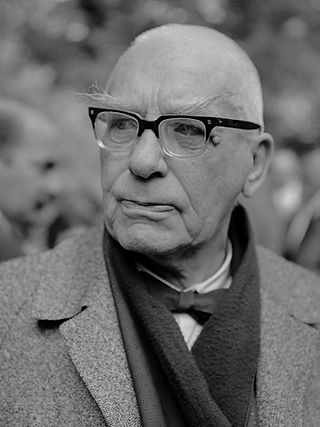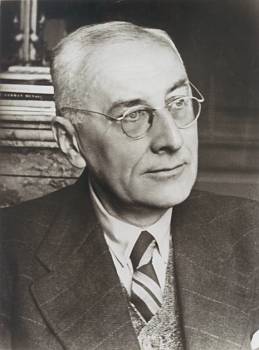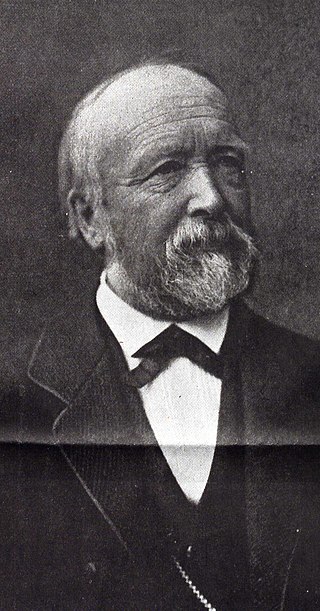
Max Heinrich Hermann Reinhardt Nettlau was a German anarchist and historian. Although born in Neuwaldegg and raised in Vienna, he lived there until the anschluss to Nazi Germany in 1938. Max Nettlau retained his Prussian nationality throughout his life. A student of the Welsh language he spent time in London where he joined the Socialist League and met William Morris. While in London he met anarchists such as Errico Malatesta and Peter Kropotkin whom he remained in contact with for the rest of his life. He also helped to found Freedom Press for whom he wrote for many years.

The Netherlands Institute for Sound & Vision is the cultural archive and a museum located in Hilversum. The Institute for Sound & Vision collects, looks after, and provides access to over 70% of the Dutch audio-visual heritage. In total, the collection of more than 750,000 hours of [television, radio, music and film that began in 1898 and continues to grow daily, makes Sound & Vision one of the largest audiovisual [archive]s in Europe. It was founded in 1997 as the Netherlands Audiovisual Archive, and adopted its current name in 2002.
The International Review of Social History (IRSH) is a scholarly journal founded, in its current format, in 1956, by the International Institute of Social History (IISH). The current academic journal revived an earlier publication by the same name issued by IISH from 1936 until its termination due to the approach of World War II in 1938.

Hildebrand Lucien (Hildo) Krop was a prolific Dutch sculptor and furniture designer, widely known as the city sculptor of Amsterdam, where his work is well represented.

Nicolaas Wilhelmus Posthumus or N.W. Posthumus was a Dutch economic historian, political scientist, and professor at Erasmus University Rotterdam.
Sebald Justinus Rutgers was a Dutch Marxist theoretician and journalist who played an important role in the Left wing section of the Socialist Party of America. He was also a construction engineer who was active in building industry in the Soviet Union.
Jacobus Ruurd "Jaap" Bruijn, was a Dutch maritime historian. He was professor of maritime history at the University of Leiden from 1979 until his retirement in 2003. During his 41-year teaching career as The Netherlands' only university professor of maritime history, he guided the doctoral theses of at least 49 graduate students.

Charles Constantin Pecqueur was a French economist, socialist theoretician and politician. He participated in the Revolution of 1848 and influenced Karl Marx.

Augustin Frédéric Adolphe Hamon was a French socialist-anarchist and later communist editor, translator, and writer on philosophy and social psychology.

The Press Museum is a museum of journalistic heritage in Amsterdam, Netherlands, that became part of the Netherlands Institute for Sound and Vision in 2017.

Atria, institute on gender equality and women's history is a public library and research institute in Amsterdam dedicated to research and policy advice on gender equality and to the documentation and archival of women's history. Its previous names were International Information Centre and Archive for the Women's Movement (IIAV) (1988-2009) and Aletta, Institute for Women's History (2009-2013).
International Archives for the Women's Movement was founded in Amsterdam in 1935, as a repository to collect and preserve the cultural heritage of women and make the documents of the movement available for study. The entire collection was stolen by the Nazis in 1940 and only small portions were recovered after the war. In 1988, the part of the archival collection which had not been looted by the Nazis became the foundational collection of the International Information Centre and Archives for the Women's Movement. A substantial portion of the archive was discovered in Moscow in 1992 and returned to Amsterdam in 2003. In 2013, the institution which houses the collection was renamed as the Atria Institute on Gender Equality and Women's History
Anarchist archives preserve records from the international anarchist movement in personal and institutional collections around the world. This primary source documentation is made available for researchers to learn directly from movement anarchists, both their ideas and lives.

Martina Kramers (1863-1934) was a Dutch suffragist who was a leader in the International Council of Women and the International Woman Suffrage Alliance as well as in the national feminist movement in the Netherlands. In her various roles, Kramers was an active speaker, writer, and conference organizer for the causes she supported.

Jan Müller is a media archive executive and former advertising executive. He is currently the CEO of the National Film and Sound Archive of Australia.
Anarchism in the Netherlands originated in the second half of the 19th century. Its roots lay in the radical and revolutionary ideologies of the labor movement, in anti-authoritarian socialism, the free thinkers and in numerous associations and organizations striving for a libertarian form of society. During the First World War, individuals and groups of syndicalists and anarchists of various currents worked together for conscientious objection and against government policies. The common resistance was directed against imperialism and militarism.

Adolf Reichel was a German-Swiss orchestral conductor and composer.

Johannes Mathias Wilhelmus Gerardus Lucassen is a Dutch historian. He studied history at Leiden University and obtained his PhD at Utrecht University in 1984 with Migrant Labour in Europe 1600-1900. The Drift to the North Sea. He specializes in the history of labour, the long-term development of labour relations, migration and monetisation in relation to the development of wage labour.

Beatrice Boeke-Cadbury was an English-Dutch social activist, educator, and Quaker missionary. For her work educating and hiding Jewish children during the Holocaust, she was posthumously recognized as one of the Righteous Among the Nations.
















